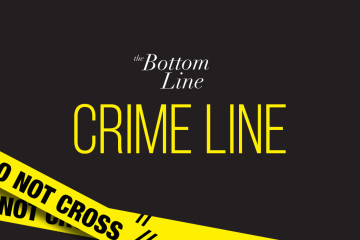FSU Students and Faculty Carry On Decades-old Campus Tradition of Protecting the “Freedom to Read”
On Tuesday, October 6, the Frostburg State Department of English, the Lewis J. Ort Library, and the university’s chapter of Sigma Tau Delta, International English Honor Society, hosted a public banned books reading on the third floor of the Ort Library at Frostburg State University. Held in conjunction with the American Library Association’s Annual Banned Books Week: “Celebrating the Freedom to Read,” the event gave students and professors the opportunity to discuss the dangers of literary censorship and read aloud selections from infamously challenged books.
Over a dozen students and professors read during the event, which has been held annually for over fifteen years. The slate of books showcased included Maya Angelou’s I Know Why the Caged Bird Sings and George Orwell’s Nineteen Eighty-Four, among many others. Before reading five-minute excerpts from their chosen book, the presenters shared background on why each work was challenged and why they selected their respective book to present.
Dr. Mary Anne Lutz of the Department of English played a vital role in organizing and hosting the event. A member of the Frostburg State University faculty since 1988, Lutz emphasized the significance of students and professors coming together to call attention to the harm caused by censorships in schools and communities. While she stressed that parents have a right to determine what books are appropriate for their children, she argued, “We have to have, through libraries, and in other places, access to ideas that are controversial, works that deal with difficult subject matter like child abuse and racism.”
Speaking to The Bottom Line after the conclusion of the banned books reading, Lutz explain that allowing certain literature to be banned or restricted can pose serious threats to the intellectual and academic growth of individuals, especially students. She specifically noted that restricting literature simultaneously interferes with students’ “ability to think critically, and to learn about the past and the injustices of the past.”
The Bottom Line was also able to speak to several students who participated in the public readings. Melody Tootoonchi, who currently serves as the president of FSU’s Sigma Tau Delta chapter, not only read aloud, but also was involved in the planning and hosting of the event. For her selection, she read from John Green’s 2012 novel The Fault in Our Stars, calling it “one of the first books to make me both laugh and cry.”
Discussing why Sigma Tau Delta has faithfully hosted the event for so many years, Tootoonchi explained, “there’s the National Banned Books Week every year, so we just come together to draw attention to the fact that these great books that have this great material are still being banned in schools, and to celebrate the freedom that we have to read them, and just share some of the great moments from them.” Other members of the honor society in attendance shared that sentiment and stressed the specific importance of students at a university taking a stand for their rights to read and learn freely.
When asked what they hoped those in attendance took away from the event, several of the students who presented agreed that experiencing polarizing literary works is a vital component of a truly fulfilling education. Glenn Lavin, who read a series of passages from Mark Twain’s The Adventures of Huckleberry Finn, said ”The content [of banned books] is often times uncomfortable, but it’s not as if it’s any less real.”
Tootoonchi added, “There’s some valuable lessons that people can learn through the vicarious experience of reading, rather than going through unfortunate experiences themselves” and Darik VonRigler observed, “Cutting out books that are written by people is cutting out part of the human condition, which is important.” VonRigler read from My Brother Sam is Dead by James Lincoln Collier and Christopher Collier.
This year’s banned books reading comes over fifty years since Frostburg’s original battle against censorship. In the spring of 1963, four English professors were fired after defying an administrative ban against teaching certain controversial books, including Lady Chatterley’s Lover by D.H. Lawrence and Tropic of Cancer by Henry Miller.
This infringement on the rights of students and faculty led to active campus protests spanning two semesters. These demonstrations were covered by The Baltimore Sun and The Washington Post and concluded with the eventual resignation of the college’s president. By 1967, the college handbook included an official “Statement on Academic Freedom” which guaranteed Frostburg students the right to speak, learn, and read freely.
Sigma Tau Delta, International English Honor Society was established in 1924 on the campus of Dakota Wesleyan University. According to its website, the organization has over 875 active chapters and approximately 9,000 newly inducted members annually.
The annual National Banned Books Week is an initiative of the American Library Association’s Office for Intellectual Freedom. According to the ALA, it “brings together the entire book community –- librarians, booksellers, publishers, journalists, teachers, and readers of all types –- in shared support of the freedom to seek and to express ideas, even those some consider unorthodox or unpopular.” The annual event is traditionally held in late September or early October.



1 Comment